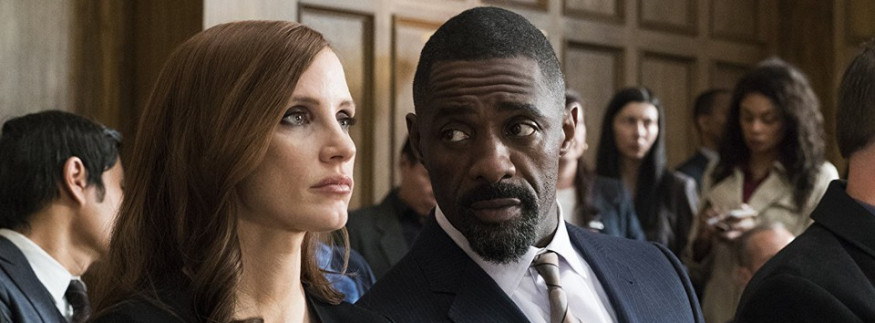
A good film is one that strikes a balance between that which is seen, and that which is spoken. In the film Molly’s Game, filmmaker Aaron Sorkin completely tips this scale.
Molly’s Game revolves around the true story of retired Olympic skier Molly Bloom (Jessica Chastain) who abandons her plans to attend law school, and delves into the world of gambling. Molly eventually becomes the biggest game runner in the United States, and her players are celebrities, business tycoons, and even Russian mafia members. Molly gets investigated by the FBI for ties with the Russian mafia with only her lawyer, Charlie Jaffey (Idris Elba), by her side.
Sorkin is an accomplished scriptwriter, with several successful projects: The Social Network, Moneyball, and Steve Jobs. His work is characterized by a kind of witty dialogue that elegantly clarifies character motives, thereby providing audiences with unique insight into his characters’ lives, thoughts, and feelings.
While Molly’s Game marked Sorkin’s directorial debut, his background as a scriptwriter remained ever-present throughout the film. The dialogue was sharp, expressive, and intellectual, just as one would expect from Sorkin. The dialogue, however, overtook the entire film; the film was an audio book, with an optional video element running in the background.
Sorkin even heavily relied on first person narration, with Jessica Chastain’s monologues taking up large portions of the film. These monologues would have made more sense, had they been embedded more subtly in the unfolding events; for example, if the film had set up Chastain’s monologues in the framework of Molly recounting her stories to her lawyer, the monologues would not have seemed so heavy for audiences to digest. Moreover, these monologues allowed for the film to retain a high degree of self-reflexivity; audiences were being constantly reminded that they were watching a film, where an actress was narrating a story inspired by true events, and based on non-fictional characters.
Hence, the film’s flow and progression were majorly flawed. The film’s pace was quick enough to keep audiences interested throughout the film’s first part (when Molly is explaining her past and how she got to run games in Los Angeles). Once Molly moves to New York, however, the film’s pace starts to slow down and drag on: it is clear that the film could have largely benefitted from cutting out at least 20 minutes of its run time.
Since it takes much more time to narrate a story merely through words, and Molly’s Game was all words, it is no wonder that the film was a whooping 2 hours and 30 minutes in length. In other words, if Sorkin had relied on the cinematic medium’s tools (cutting, editing, cinematography etc.), the film’s run time could have been considerably cut.
All that being said, Chastain proved to be the perfect casting option for Sorkin’s heavy reliance on dialogue and character development. She excelled at her performance as an intelligent, hungry for success, and overachieving woman, whilst simultaneously revealing Molly’s broken edges. Given all this, Chastain’s performance carried the film through all its aforementioned major flaws: if any other actress had been the one to deliver the lengthy monologues, the film would have been a bit unbearable.
All in all, the film’s premise and dialogue are definitely intriguing; even though the film drags on, and seems to have no clear end point, it is not a film most audiences would regret seeing.
Write your review
recommended
 Arts & Culture
Arts & Culture
The Coptic Museum: The History of Egypt to the Tunes of Psalms of David
arts & culture cairo museums +4 Health & Fitness
Health & Fitness
Egyptians in the 2024 Summer Olympics
Egyptians in the Olympics Olympics +1 City Life
City Life
Weekend Guide: Bazar by Sasson, Memo, The Cadillacs, Heya Bazaar, Dou, Nesma Herky & More
Concerts The Weekend Guide +2 Arts & Culture
Arts & Culture

